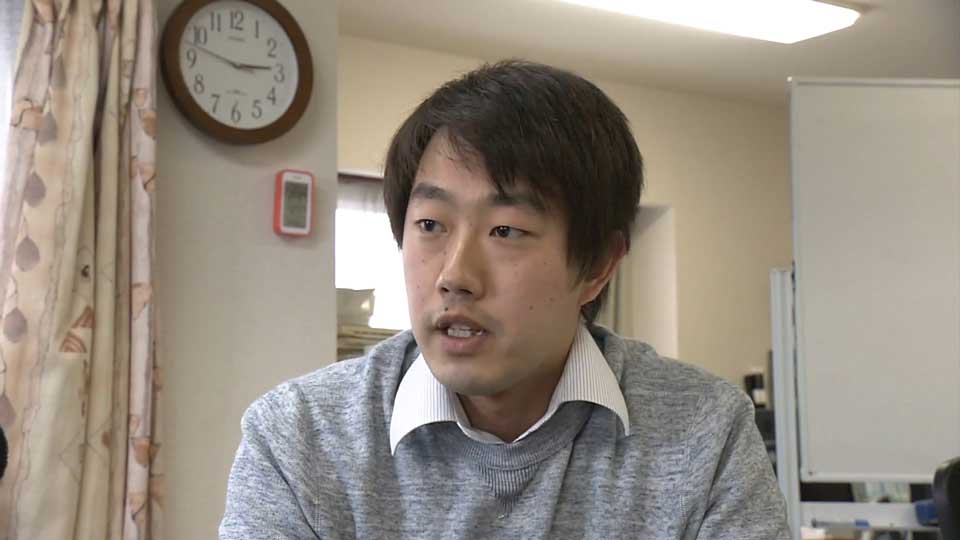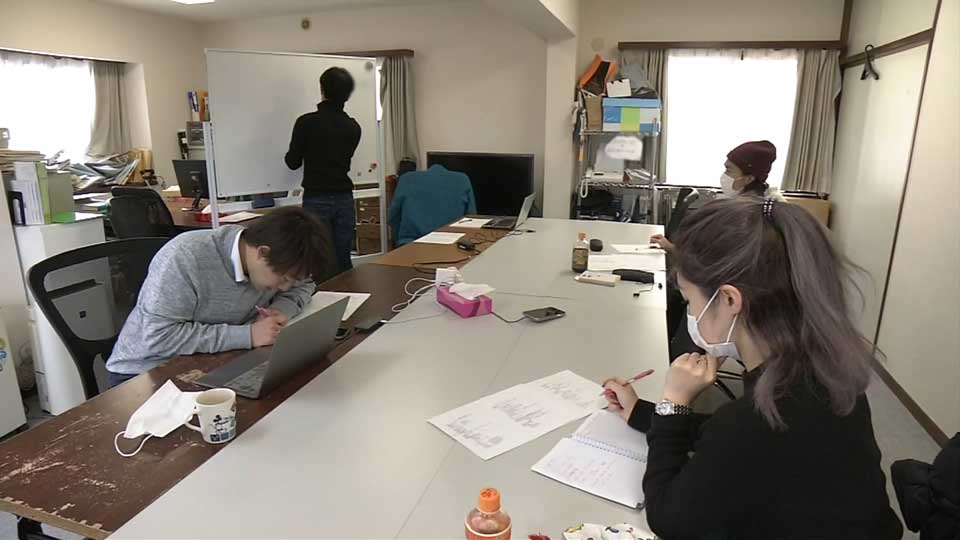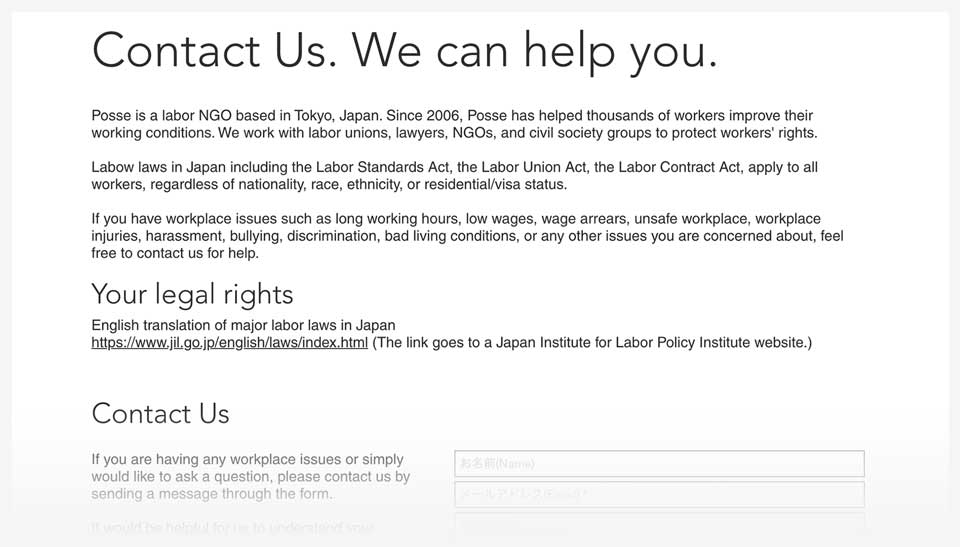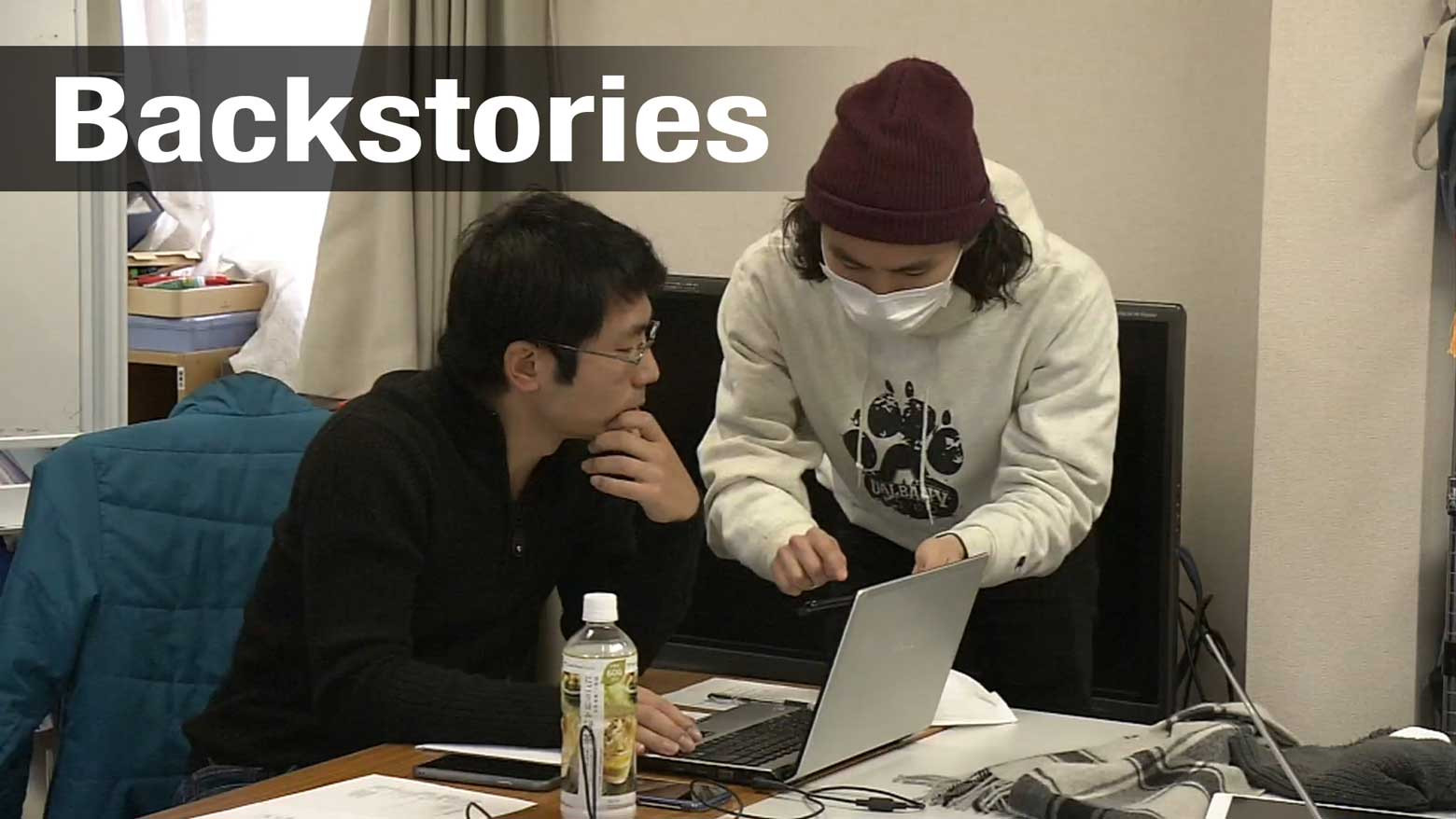Plight of workers from abroad
Counselors at non-profit organization POSSE provide free labor advice in Japanese and English. One of those counselors, Iwahashi Makoto, says they usually get a handful of inquiries each month. But last month the number shot up to 100.

Iwahashi says many inquiries came from instructors at foreign language schools in early March. Those schools canceled their classes after Japan’s government called for the closure of elementary, junior high and high schools from March 2.
Many instructors were told to stay at home on standby, and they saw their income nosedive. Even if classes took place, instructors complained about a lack of protective measures at their schools, including a failure to press students to wear masks.
Later in the month, people in the tourism industry, including receptionists and cleaners at hotels, as well as part-time workers at restaurants and pubs, turned to POSSE for advice.
Many of those workers came to Japan from other parts of Asia. Some told counselors their shifts have been cut and their income had dropped sharply. Others said they were facing pressure to quit their jobs as employers cited shrinking sales. For some, the income drop means they can no longer afford to live in Japan.

A lifeline
Japan’s Labor Standards Law requires firms to cover at least 60 percent of their average wages if they force their employees to take days off. This provision covers all workers regardless of their nationality and applies to both regular and irregular workers. But many people who contacted the NPO didn’t know about the allowance and failed to receive it.
Iwahashi has been advising people to collect their work records, including documents showing terms and conditions of their employment, shift rosters, and work-related mails from their firms. POSSE also helps negotiate with the employers.
Japan needs foreign workers
The labor ministry says the country had about 1,659,000 foreign workers as of last October. That’s more than double the figure from five years earlier.
Iwahashi says, "Japan’s labor market can no longer do without people from overseas. But the country doesn’t have a system to fully support them." He says many non-Japanese workers are in a tougher situation than their Japanese counterparts because the language barrier limits their access to information.
The Japanese government has unveiled an emergency economic package, including cash handouts worth more than 2,700 dollars for households whose income have drastically fallen due to the outbreak. But government officials haven’t clarified whether foreign residents will be eligible for the relief.
Emergency interest-free loans are also available for people who have been forced to suspend their work. But it’s very difficult to get the loans unless they are long-term residents.
The labor ministry has set up its own consultation service for workers from abroad, but the service doesn’t accept inquiries by e-mail.
Iwahashi says the inquiries that POSSE receives are only the tip of the iceberg. The coronavirus outbreak is expected to have a long-term impact on the economy and force deeper cuts in the service and manufacturing sectors.
"Many non-Japanese workers have been making only slightly more than the minimum wage," says Iwahashi. "They won’t be able to make ends meet if their income falls much lower. The government needs to do more to support them."



